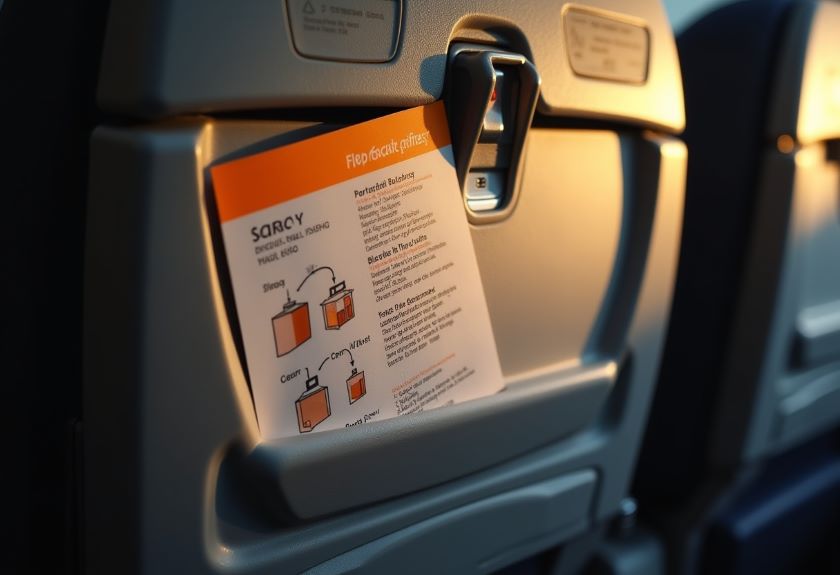Friday, July 4, 2025
Recent changes in regulations regarding the transportation of portable batteries on planes are making headlines, as airlines respond to growing concerns over fire risks associated with lithium-ion batteries. The latest updates have resulted in new rules that vary across airlines and regions, leaving passengers needing to adjust their travel preparations.
Why Are the Rules Changing?
The catalyst for these changes was a devastating fire that destroyed an Air Busan aircraft on the tarmac in South Korea in January 2025. Investigations suggested that a power bank could have been responsible for the blaze. Lithium-ion batteries, which power most portable chargers, are known to pose a fire risk if damaged, overheated, overcharged, or exposed to water. While these batteries are banned from checked luggage, the fire prompted additional restrictions, including tighter rules about their use in the cabin.
Key Airline Changes
Several major airlines have already adjusted their policies on portable batteries, including:
South Korea: The government has mandated that passengers store portable chargers within arm’s reach during the flight, and no longer in overhead compartments.Taiwan and China: EVA Air and China Airlines have instituted a ban on the use and charging of power banks during flights. Passengers can still store them in overhead compartments, but the chargers cannot be used or charged during the flight.Southeast Asia: Airlines such as Thai Airways, Singapore Airlines, and Malaysia Airlines have implemented similar bans on using or charging power banks onboard.Hong Kong: Cathay Pacific, along with other Hong Kong-based airlines, has followed suit by restricting the use of portable chargers during flights.United States: Southwest Airlines became the first of the major U.S. carriers to update its rules. From now on, passengers cannot charge devices with portable batteries when stored in overhead bins.China: China’s aviation authority has introduced stricter guidelines, barring unmarked portable batteries or those with safety recalls from boarding flights in China.Japan: In late June 2025, Japanese airlines including All Nippon Airways and Japan Airlines prohibited passengers from storing portable batteries in overhead bins.Europe: Ryanair, the well-known European low-cost airline, now asks passengers to remove lithium-ion batteries before placing bags in overhead compartments.The Risks Involved
Lithium-ion batteries are used in many everyday devices, from smartphones and laptops to power banks. However, they come with inherent risks. If one of the battery’s cells overheats due to damage or malfunction, it can trigger a chain reaction that causes the battery to catch fire or explode. This risk is heightened in devices that are poorly regulated, such as e-cigarettes, scooters, and certain power banks. This is particularly concerning during flights, where malfunctioning batteries can lead to cabin fires, potentially jeopardizing passenger safety.
Experts, including Neeraj Sharma, a chemistry professor at the University of New South Wales, suggest that consumers ensure their electronic devices come from reputable manufacturers to mitigate these risks.
The Frequency of Fires
Lithium-ion batteries have caused a steady increase in fire incidents on U.S. airlines. There were 84 reported incidents in 2024 alone, up from just 32 in 2016. These fires, which range from overheated devices to smoke-filled cabins, are typically caused by power banks and e-cigarettes. Airlines globally have taken precautions by mandating passengers to carry spare batteries in their carry-on bags, allowing crew to address any fires more quickly than if they occurred in checked luggage.
What Happens During a Fire?
In the rare event of a fire caused by a lithium-ion battery during a flight, the situation is usually manageable. Flight crews are well-trained to handle such emergencies. If a battery starts overheating, the device is often placed in a thermal containment bag or doused with water to prevent further issues, typically without causing any major disruption to the flight.
While the risks are real, safety measures onboard are designed to ensure that lithium-ion battery fires are not life-threatening. Nonetheless, the increasing frequency of such incidents has led to heightened concerns and stricter regulations.
Conclusion
As airlines continue to adjust their policies regarding portable batteries, it’s essential for passengers to stay informed about the specific rules for their flights. The new guidelines are designed to prevent fires and keep everyone safe, but passengers should be prepared for some changes when packing their devices. Always check with your airline before you travel to ensure compliance with the latest regulations.
For further details, travelers are advised to consult the official aviation regulatory bodies and airlines for the most up-to-date information on safety protocols.
«Enjoyed this post? Never miss out on future posts by following us»
